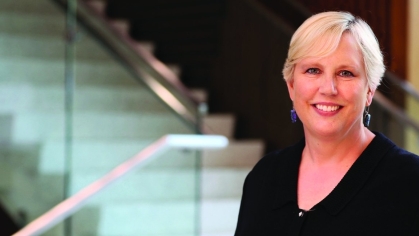Rutgers School of Social Work’s Office of Field Education recently launched a self-care toolkit for social work students and practitioners who are susceptible to compassion fatigue and burn out as they provide care to others. Finding proper and individualized ways to unwind after facing various stressors can recharge the mind, body, and spirit for personal and professional growth and fulfillment.
We had the opportunity to speak with Keith Kanauss, a recent graduate of our BA in social work program, about the importance of self-care for social workers.
Tell us a bit about the work you’ve done in self-care.
I was part of a three-person research team specializing in self-care. I conducted research on the coronavirus during the summer into the fall of 2020. During the fall semester we worked on using our self-care information and converted it into a newsletter and a webpage for students at the School of Social Work to refer to for their self-care needs. The webpage contains more information than the newsletter, as there was a lot of research in many self-care categories. We also combined our information in the fall semester and presented “Self-Care During Covid-19” to School of Social Work students. Additionally, we assisted the field practicum curriculum team in creating presentations on self-care for the students to review before entering field.
What did you learn doing this work?
I learned early in my research that self-care is not a spa day or a vacation. It is a process that anyone can do to help with their own well-being. It is about identifying the stressors in your life and knowing the techniques to combat them with self-care. It is also not a “one size fits all” process. You need to find what works best for you. Having self-care in your life reduces stress. Always keep looking into new ways to practice self-care. There are so many choices.
What advice would you give to fellow students who struggle with self-care?
My best advice is to carve a little time out of your day for some self-care. Even if it is only five to fifteen minutes a day. There are exercises and techniques out there for people that have little time. A short walk in nature or breathing exercises are a couple examples. Once you see the benefits of self-care, you will try to put more time in to creating a better you.
What are some of the ways you practice self-care?
When I began in my senior year, I did not have a plan in place for self-care because of school, work, and home life. I began to realize I needed self-care because stress was impacting my sleep. I tried many techniques but learned that having an exercise/weightlifting schedule really helped me. I also started using box breathing techniques during the day to reduce stress, and when I have more time, I practice yoga. I know what I do might not work for everyone, but something will.



